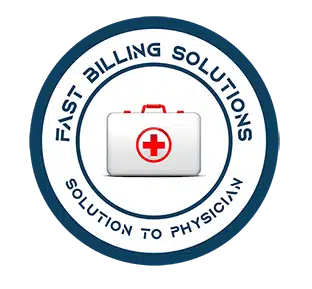Medical billing refers to submitting claims to insurance companies or government programs for reimbursement of healthcare services provided to patients. It involves creating accurate and detailed bills for the services offered, including diagnoses and procedures, and submitting them to the appropriate payer. It also involves verifying patient insurance coverage, tracking claims, and resolving claim denials or rejections. Fast Billing Solutions’ medical billing services in New York include claims processing, coding and documentation, refusal, and revenue cycle management. These services help healthcare providers optimize billing processes, reduce errors and denied claims, and improve financial performance.
Key Components of Medical Coding in New York
The key components of healthcare billing include several critical stages essential to successful and efficient claims processing. These components include patient registration and insurance verification, charge entry, medical coding and documentation, claims submission, payment posting, and denial management.
Each stage requires careful attention to detail and accuracy to ensure that claims are processed efficiently and accurately. Medical Coding Analysis and documentation are crucial, as they ensure that services provided are correctly coded and billed according to the appropriate healthcare billing codes. Effective denial management is also critical, as it helps healthcare providers promptly identify and address denied claims, ensuring they receive proper reimbursement for the services provided. The key components of medical billing services work together to streamline the billing process and ensure that healthcare providers receive timely and accurate payments.
New York Medical Billing Errors and How to Avoid Them
Healthcare billing errors can result in claim denials, delayed payments, and even legal issues. Some common healthcare billing errors include coding errors, inaccurate patient information, incorrect or incomplete claim forms, and failure to meet regulatory requirements. These errors can be costly for healthcare providers and negatively impact patient care. To avoid these errors, healthcare providers in New York can implement several best practices, such as ensuring proper documentation and accurate coding, verifying patient insurance information, utilizing electronic billing systems, and staying up-to-date with regulatory requirements.

Regular staff members’ training and education can help prevent healthcare billing errors. By taking these steps and being diligent about accurate and thorough billing practices, healthcare providers can avoid common healthcare billing errors and ensure they get reimbursed on time. Our professional Medical Billing Services providers can help you with billing errors accurately.
Pros and Cons of Healthcare Billing Services in New York
Outsourcing healthcare billing services can offer many benefits, such as increased efficiency, reduced costs, and access to specialized expertise. Outsourcing allows healthcare providers to focus on patient care and other core business functions. However, there are also potential drawbacks to outsourcing, such as the risk of reduced control over billing processes and increased vulnerability to data breaches.
Additionally, outsourcing may require additional time and resources for onboarding and management of the outsourcing partner. Ultimately, outsourcing Healthcare Billing services will depend on each provider’s unique needs and goals. Considering both the benefits and drawbacks of outsourcing can help providers make an informed decision and select an outsourcing partner that is the right fit for their organization. Professional medical billing services providers in New York can provide the best services.
Future of Medical Billing Services & Revenue Cycle Management
The future of healthcare billing and revenue cycle management is likely to be driven by technological advancements, changes in healthcare regulations, and shifts in patient expectations. Electronic health records (EHRs) and artificial intelligence (AI) are expected to play an increasingly important role in Healthcare Medical Billing, allowing for greater accuracy and efficiency. Additionally, changes to healthcare regulations, such as the shift towards value-based care, will require healthcare providers to adapt their revenue cycle management strategies to focus on patient outcomes rather than the volume of services provided.

Patients are also likely to demand more transparency and convenience in the billing process, which may lead to increased use of patient portals and digital payment options. Overall, the future of medical billing services and revenue cycle management will be shaped by various factors. Still, professionals who are proactive in adopting new technologies and adapting to changing regulations and patient expectations are likely to be the most successful.



